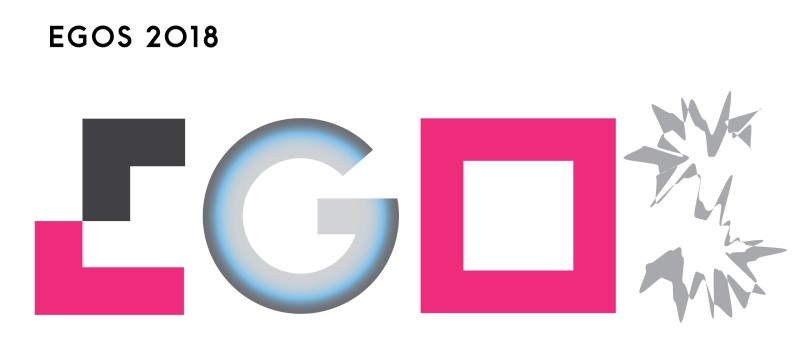PDW 05: Intersections: Connecting Agendas on Arts, Aesthetics, Creativity and Design --- CANCELLED!
Call for Applications
Round-table Facilitators & Panellists:
Santi
Furnari, Cass Business School, United Kingdom
Elena Raviola, Gothenburg
University, Sweden
Arja Ropo, University of Tampere, Finland
Stoyan
V. Sgourev, ESSEC Business School, France
Barbara Slavich, IESEG School of
Management, France
Ileana Stigliani, Imperial College London, United
Kingdom
Maria Laura Toraldo, Università della Svizzera italiana, Switzerland
Annukka Yrämä, Estonian Academy of Theatre and Music & Aalto University,
Estonia & Finland
Purpose
Interest in and research on arts, aesthetics, creativity, and design in relation to organization and organizing have grown over the years, delving into aspects of careers, work, leadership, management, practices, projects, and space, among others. However, scholars working in these domains have rarely come together to learn from each other and explore ways to collectively engage with issues of import for organizations, management and society.
This PDW seeks to bring together EGOSians from Arts Management, Cultural and Creative Industries, Design, Organizational
Aesthetics, Organizational Space and other related communities, which have been gathering at EGOS in different sub-themes
in recent years. Its purpose is to establish a dialogue, critically explore current work and new frontiers, and connect agendas
in terms of research, learning, and engagement with society. It is also an excellent opportunity for scholars who work from
within and across these domains to share experiences and engage in discussions on their work. We see great potential in bringing
these communities and their respective agendas together as a platform for advancing new ideas for research and learning on
managing, leading and organizing with humanity and professionalism.
Format
The PDW will consist
of 2 panel sessions and 2 round-tables sessions. In the first panel session, invited scholars representing work in the different
communities will highlight current and future frontiers in their research domains. In the round-table sessions, participants’
papers on topics that explore issues related to organizing and art, aesthetics, creativity and design will be discussed. We
invite original work, both empirical and conceptual; different theoretical perspectives and methodological approaches are
welcome.
The PDW will conclude with a panel discussion on the potential for shared conversations and collaboration,
which will engage invited scholars and participants in an interactive debate.
Field trip: In the
afternoon, for those PDW participants who have time and interest, there will be an opportunity to socialize informally across
the communities while exploring Tallinn’s vibrant arts and creative industries’ scene.
Application
The
workshop mainly targets early career researchers and doctoral students, but is also open to more experienced scholars who
work in these fields of study and/or at their intersections.
Please submit – via the EGOS website – by April 30,
2018 a single document of application (.doc, .docx or .pdf file) that includes:
On the cover page, a short letter of application containing full details of name, contact (i.e., postal address, phone, and email), affiliation, date of PhD completion or stage in doctoral studies (if applicable);
A statement of why the applicant considers it valuable to attend the PDW, and an indication of which journal(s) will be targeted for submission after development at the workshop;A full paper dealing with issues related to art, aesthetics, creativity and design in and across organizations for development at the workshop.
References
- Antonacopoulou, E.P., & Taylor, S. (2018a): Sensuous Learning for Practical Judgment in Professional Practice, Vol. 1: Arts-based Methods. London: Palgrave Macmillan.
- Antonacopoulou, E.P., & Taylor, S. (2018b): Sensuous Learning for Practical Judgment in Professional Practice, Vol. 2: Arts-based Interventions. London: Palgrave Macmillan.
- Austin, R.D., Hjorth, D., & Hessel, S. (2017): “How Aesthetics and Economy Become Conversant in Creative Firms.” Organization Studies, http://journals.sagepub.com/doi/abs/10.1177/0170840617736940
- Beyes, T. (2016): “Art, Aesthetics and Organization:” In: B. Czarniawska (ed.): A Research Agenda for Management and Organization Studies. Cheltenham: Edward Elgar Publishing, 115–125.
- DiMaggio, P. (ed.) (1986): Nonprofit Enterprise in the Arts: Studies in Mission and Constraint. Oxford University Press.
- Eikhof, D.R., & Haunschild, A. (2007): „For art’s sake! Artistic and economic logics in creative production.” Journal of Organizational Behavior, 28, 523–538.
- Fortwengel, J., Schüßler, E., & Sydow, J. (2017): “Studying organizational creativity as process: Fluidity or duality?” Creativity and Innovation Management, 26 (1), 5–16.
- Jones, C., Svejenova, S., Strandgaard, J., & Townley, B. (2016): “Misfits, Mavericks, Mainstreams: Drivers of Innovation in the Creative Industries.” Organization Studies, 37 (6), 751–768.
- Mainemelis, C., Kark, R., & Epitropaki, O. (2015): “Creative Leadership: A Multi-Context Conceptualization.” Academy of Management Annals, 9 (1), 393-482.
- Moeran, B., & Strandgaard Pedersen, J. (eds) (2011): Negotiating Values in the Creative Industries: Fairs, Festivals and Competitive Events. New York: Cambridge University Press.
- Paquette, J. (ed.) (2012): Cultural Policy, Work and Identity: The Creation, Renewal and Negotiation of Professional Subjectivities. Aldershot: Ashgate Publishing.
- Ravasi, D., & Stigliani, I. (2012): “Product Design: a Review and Research Agenda for Management Studies.” International Journal of Management Review, 14, 464-488.
- Raviola, E., & Sackarisasson, P. (eds.) (2017): Arts and Business: Building a Common Ground for Understanding Society. London: Routledge.
- Rentschler, R. (2015): Arts Governance: People, Passion and Performance. London: Routledge.
- Ropo, A., Salovaara, P., Sauer, E., & De Paoli, D. (2015): Leadership in Spaces and Places. Cheltenham: Edward Elgar.
- Sgourev, S.V. (2013): “How Paris Gave Rise to Cubism and Picasso: Ambiguity and Fragmentation in Radical Innovation.” Organization Science, 24 (6), 1601–1617.


